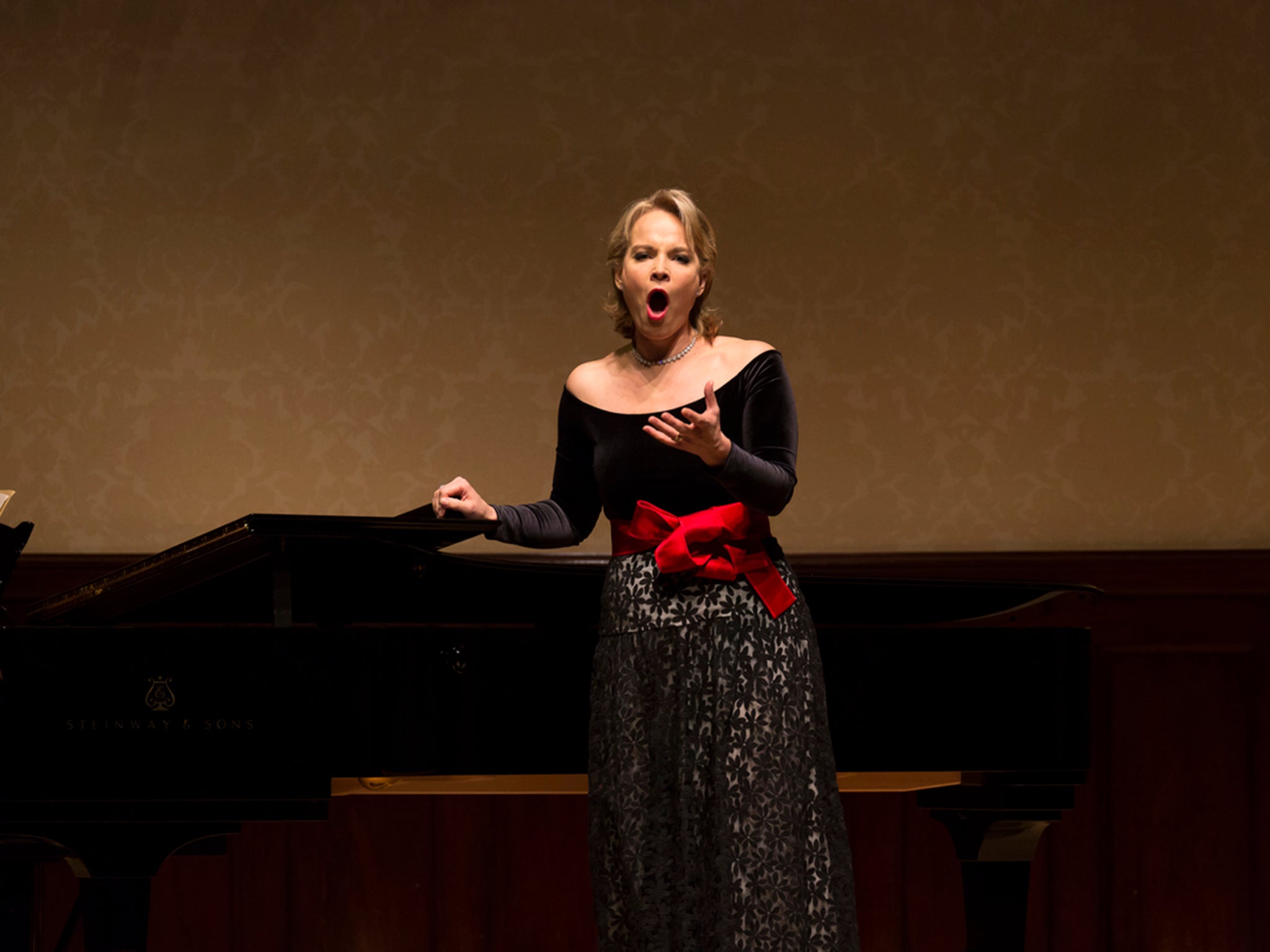Garanca/Vignoles, Wigmore Hall, review: Elina Garanca and Roger Vignoles excel
The wonder of this recital was that Vignoles had stepped in at just two days’ notice

Your support helps us to tell the story
From reproductive rights to climate change to Big Tech, The Independent is on the ground when the story is developing. Whether it's investigating the financials of Elon Musk's pro-Trump PAC or producing our latest documentary, 'The A Word', which shines a light on the American women fighting for reproductive rights, we know how important it is to parse out the facts from the messaging.
At such a critical moment in US history, we need reporters on the ground. Your donation allows us to keep sending journalists to speak to both sides of the story.
The Independent is trusted by Americans across the entire political spectrum. And unlike many other quality news outlets, we choose not to lock Americans out of our reporting and analysis with paywalls. We believe quality journalism should be available to everyone, paid for by those who can afford it.
Your support makes all the difference.The Latvian mezzo Elina Garanca delivers her recitals with statuesque grace, dominating as much by her regal physical presence as by the power and beauty of her voice; her artistry, honed in the best Soviet tradition, is informed by an acute intellectual command of her material. On this occasion she had chosen twenty-five songs by Brahms, Duparc, and Rachmaninov which cohered through their prevailingly wistful mood; support would come from the British accompanist Roger Vignoles.
Brahms’s texts conjured up worlds of subtly conflicting emotions which Garanca’s singing compellingly evoked; from the bitter-sweet edge of ‘Love and spring II’ to the moonlit rapture of ‘May night’, her phrasing and shading were alive to every nuance. And if her French diction for the Duparc songs was awkward and unidiomatic, Rachmaninov’s Russian set her free to soar gloriously, calling on all her native reserves of expressive intensity.
But the wonder of this recital was that Vignoles had stepped in at just two days’ notice, flawlessly delivering his part in this daunting programme as though he’d spent months preparing it. What other accompanist could have done so with such serene aplomb? No wonder he got his own ovation at the end.
Join our commenting forum
Join thought-provoking conversations, follow other Independent readers and see their replies
Comments